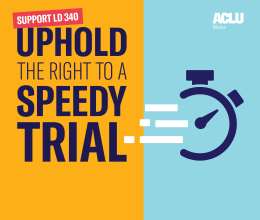
You have the right to share truthful, lawfully obtained information about law enforcement and tell people about their legal rights—even if they’re in trouble. You can also advocate for changes to laws without fear, as long as you’re not directly inciting or aiding and abetting illegal activity. Understanding these protections can help you navigate conversations about our constitutional rights with confidence.
Open the menus below to learn more about talking to people about your rights.






